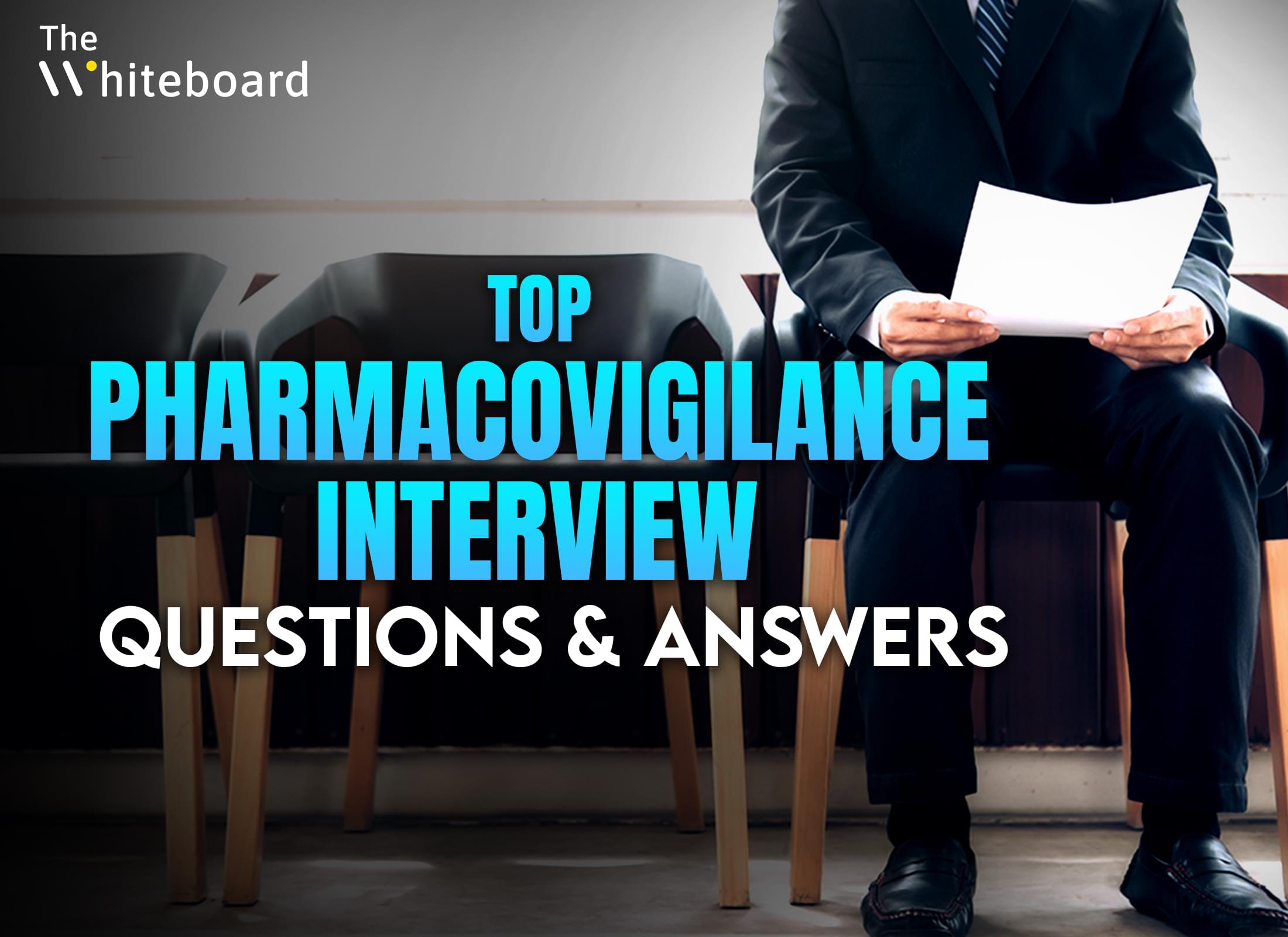The global pharmacovigilance market will be worth over $8.9 billion by 2025. The pharmacovigilance industry is focused on collating and reporting the adverse effects of over-the-counter drugs, medical devices, and disease-specific drugs. The pharmaceutical industry would not function without pharmacovigilance scientists, managers, and auditors. That’s why a career in Pharmacovigilance is full of amazing opportunities.
But Pharmacovigilance jobs are not the easiest to obtain. This field is built on centuries of research. If you want to work for leading pharmaceutical or biotech companies, you need to be prepared for the interviews. On the upside, enrolling in Pharmacovigilance courses and getting high-quality training from industry experts is now very easy. There are many drug safety and Pharmacovigilance courses to choose from – even for beginners.
How can you land these high-paying Pharmacovigilance jobs? In this article, we discuss the top 33 pharmacovigilance interview questions. Go through these questions to understand what your future job in this industry may entail.
- What is Pharmacovigilance?
The World Health Organization (WHO) defines Pharmacovigilance as the science of detecting, assessing, and reviewing the potentially adverse effects of drugs.
- When is a Drug-Related Case Considered Valid by Pharmacovigilance Scientists?
The minimum criteria for a Pharmacovigilance scientist to deem a drug as potentially adverse are -
-
- An Adverse Drug Event (ADE)
- A dubious product
- An identifiable patient
- An identifiable reporter of the event
- An Adverse Drug Reaction (ADR)
- What is ICH?
The International Council for Harmonization of Technical Requirements for Pharmaceuticals for Human Use (ICH).
- What is an Adverse Drug Event (ADE)?
According to the ICH, an Adverse Drug Event (ADE) is an “untoward medical occurrence.” It can happen in clinical trials (to subjects) or to consumers who buy the potentially adverse pharmaceutical product.
- What is an Adverse Drug Reaction (ADR)?
Adverse drug reactions are harmful and unintended responses to routine dosages of drugs.
- ADE and ADR – How Will You Differentiate the Two?
An ADE is when the causality behind the adverse occurrence is not clear. An ADR is when the causality behind the adverse occurrence is detected and reported to authorities.
In Pharmacovigilance, the term “causality” refers to the relationship between the questionable drug and the ADE.
- When Should You Consider an ADE to be Serious?
An ADE is deemed serious if it results in -
-
- Medically significant changes to the patient’s body
- The patient needs intervention to prevent permanent organ damage
- Disability, congenital anomalies, or birth defects in the consumer’s children
- Prolonged hospitalization
- Mortality
- Which countries have the most important drug regulatory bodies?
India, the USA, UK, and Japan.
- What are the major drug regulatory bodies?
-
- India - The Central Drugs Standard Control Organization (CDSCO)
- USA - The United States Food and drug administration (USFDA).
- UK - The European Medicines Agency (EMEA).
- Japan - The Ministry of Health, Labor and Welfare (MHLW).
- What is the Yellow Card Scheme?
The Yellow Card Scheme was developed by Bill Inman in 1964. It’s implanted in the UK as a system for gathering data about suspected ADRs to drugs. As per this scheme, all suspect drugs/vaccines on the market are allowed to be monitored.
- What is Informed Consent?
In Pharmacovigilance, obtaining informed consent is the process of getting permission from people before disclosing their personal information. For instance, if you’re operating a healthcare intervention on a drug consumer, you need their permission first.
- What is Volume 9A?
It’s the ICH’s guidelines on the rules that govern medicinal products in Europe.
- What Does Volume 9A Contain?
Volume 9A features four sections -
-
- I - Guidelines for marketing authorization holders
- II - Guidelines for competent authorities
- III - Guidelines for pharmacovigilance-related electronic communications in the EU
- IV - Guidelines on pharmacovigilance-related communication
- What is NDA?
NDA stands for New Drug Application.
- When Can Companies file NDAs?
Companies or sponsors of new drugs can file for NDAs if they have evidence proving the safety and effectiveness of their drugs.
- Why do Companies Need to file NDAs?
Companies file NDAs to verify their products meet the Food and Drug Administration’s (FDA) requirements.
- What is ANDA?
ANDA stands for “Abbreviated New Drug Application.”
- Why do Companies file ANDAs?
ANDA applications contain the final data that the FDA reviews before giving 100% approval to drug products.
- How Many Phases of Clinical Trials Do Drugs Go Through?
Drugs and medical devices go through four phases of clinical trials.
- What is the Phase I Clinical Trial?
In Phase I studies, the drug or device’s safety is assessed.
- What is the Phase II Clinical Trial?
In Phase II studies, the drug or device’s effectiveness is tested.
- What is the Phase III Clinical Trial?
In Phase III studies, patients (100-1000s) participate in randomized and blind tests.
- What is the Phase IV Clinical Trial?
Phase IV studies are conducted after drugs or medical devices receive approval.
- What is MedDRA?
MedDRA stands for Medical Dictionary for Regulatory Activities.
- What is SUSAR?
Suspected Unexpected Serious Adverse Reaction (SUSAR)
- What is SAE?
Serious Adverse Event (SAE)
- What is CIOMS?
The Council for International Organizations of Medical Sciences
- What is SSAR?
Suspected Serious Adverse Reaction (SSAR)
- What is ICSR?
Individual Case Safety Reports
- What are PSURs?
Periodic Safety Update Reports (PSUR)
- What is HIPAA?
The Health Insurance Portability and Accountability Act (a United States federal statute)
- What is ESTRI?
Electronic Standards for the Transfer of Regulatory Information
- What is IBD?
International Birth Date
For more detailed information, take a Pharmacovigilance course. These courses will make you ready for interviews. People with careers in Pharmacovigilance, especially from leading institutes like The Whiteboard, have the opportunity to earn up to ₹20.8 lakhs. They also get to perform meaningful jobs that help society!


